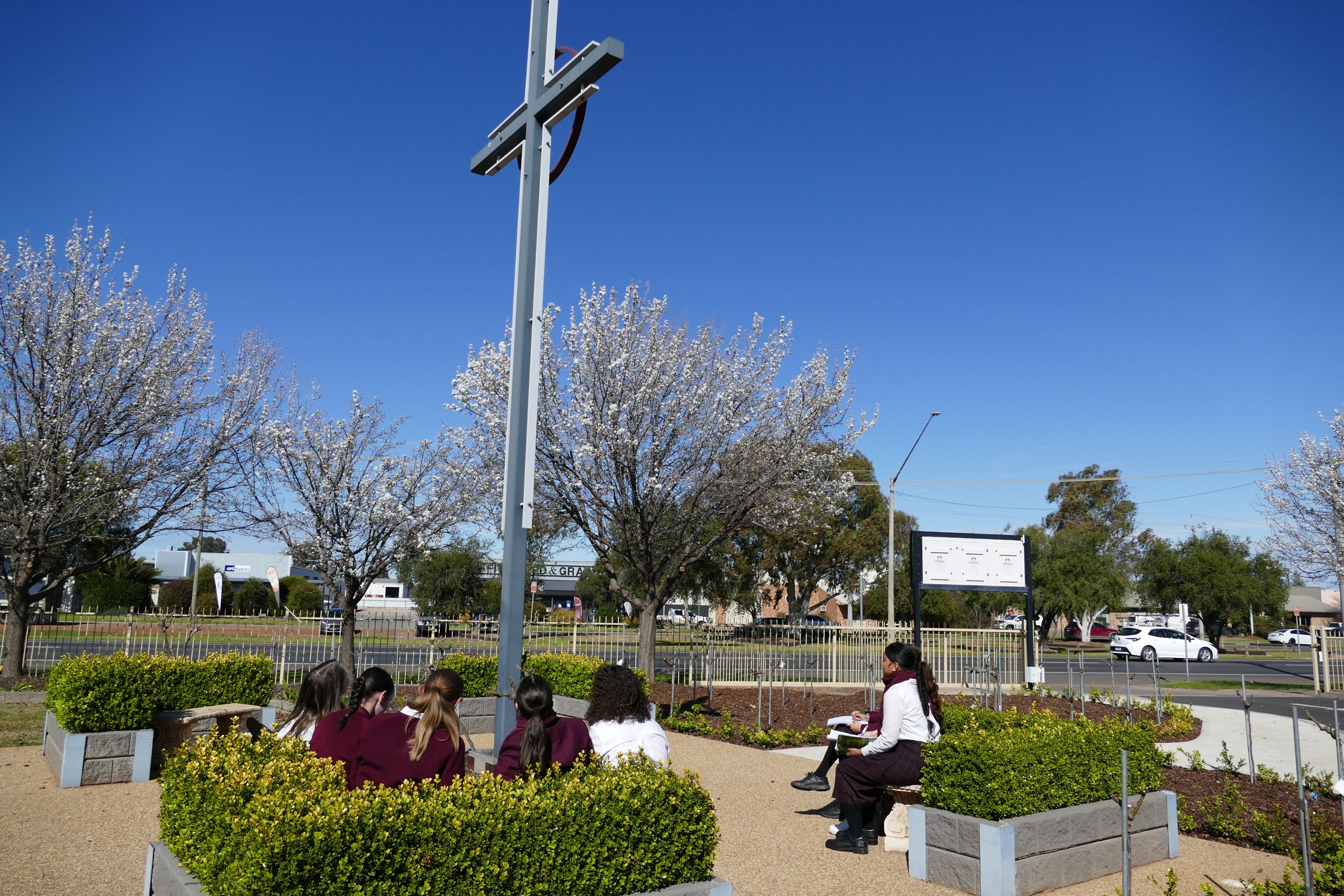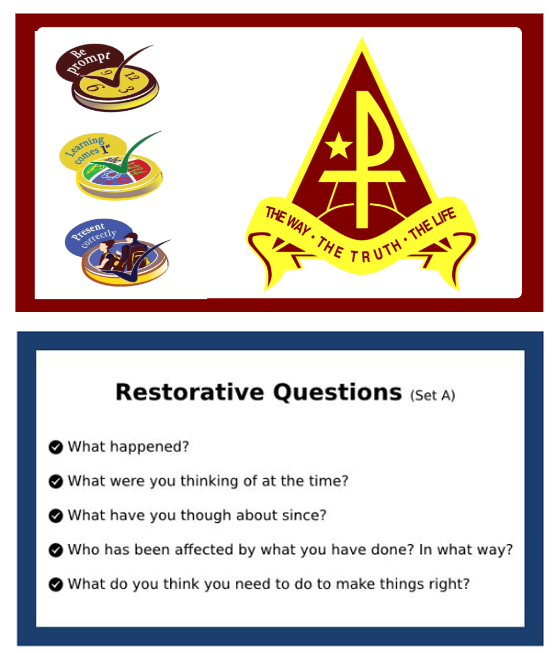Restorative Practice
Restorative
Practice at Marian
Restorative practice is a set of principles and practices that encourages young people to take responsibility for their behaviour by thinking through the causes and consequences. The process involves adults assisting students to engage in meaningful conversations and reflection to enhance their ability to make better decisions moving forward.
Restorative practice is about developing, maintaining and repairing relationships, building a community based around empathy and self-learning, where children take responsibility for their behaviour. MCC is a restorative school that takes a restorative approach to resolving conflict and preventing harm.


Helping students build positive relationships
Restorative approaches enable those who have been harmed to convey the impact of the harm to those responsible, and for those responsible to acknowledge this impact and take steps to put it right. This approach utilises a range of methods and strategies that can be used both to prevent relationship-damaging incidents from happening and to resolve them if they do happen.
This approach has many benefits, including increased attendance, reduced exclusions and improved achievement. It can also alleviate problems such as bullying, classroom disruption, truancy and poor attendance, antisocial behaviour, and disputes between pupils, their families, and members of staff.
To be effective, restorative approaches must be in place across the school. This means all pupils, staff (including non-teaching staff), management and the wider school community must understand what acting restoratively means and how they can do it. As a result, restorative schools adopt a whole-school approach to restorative methods.
